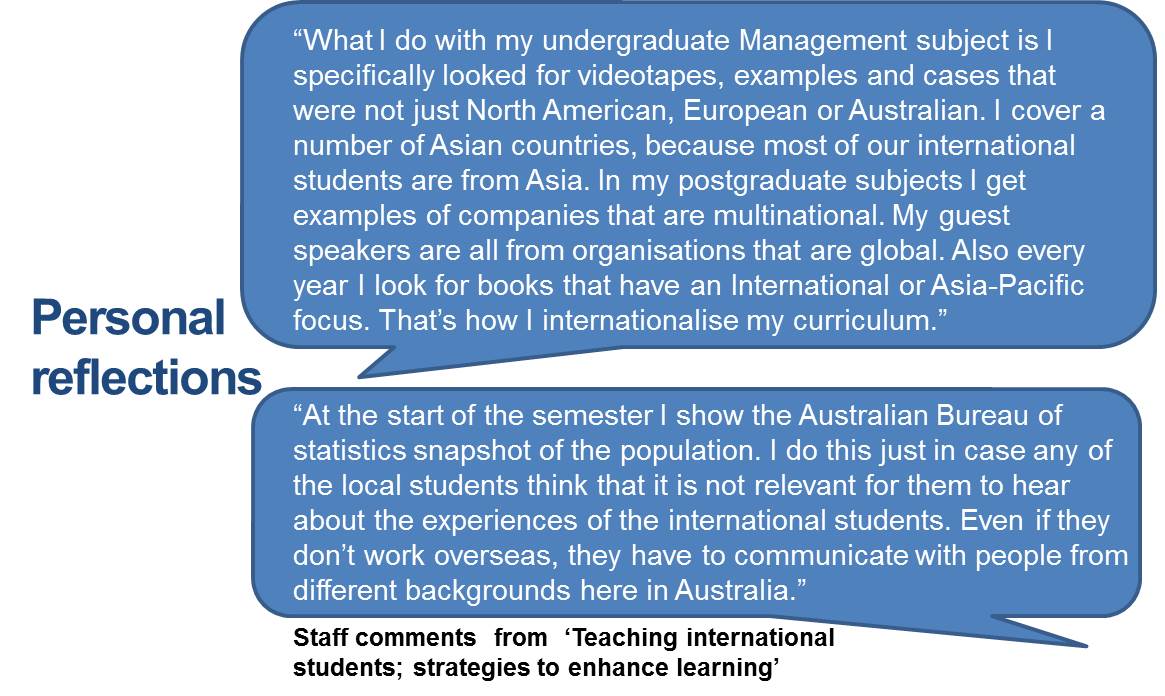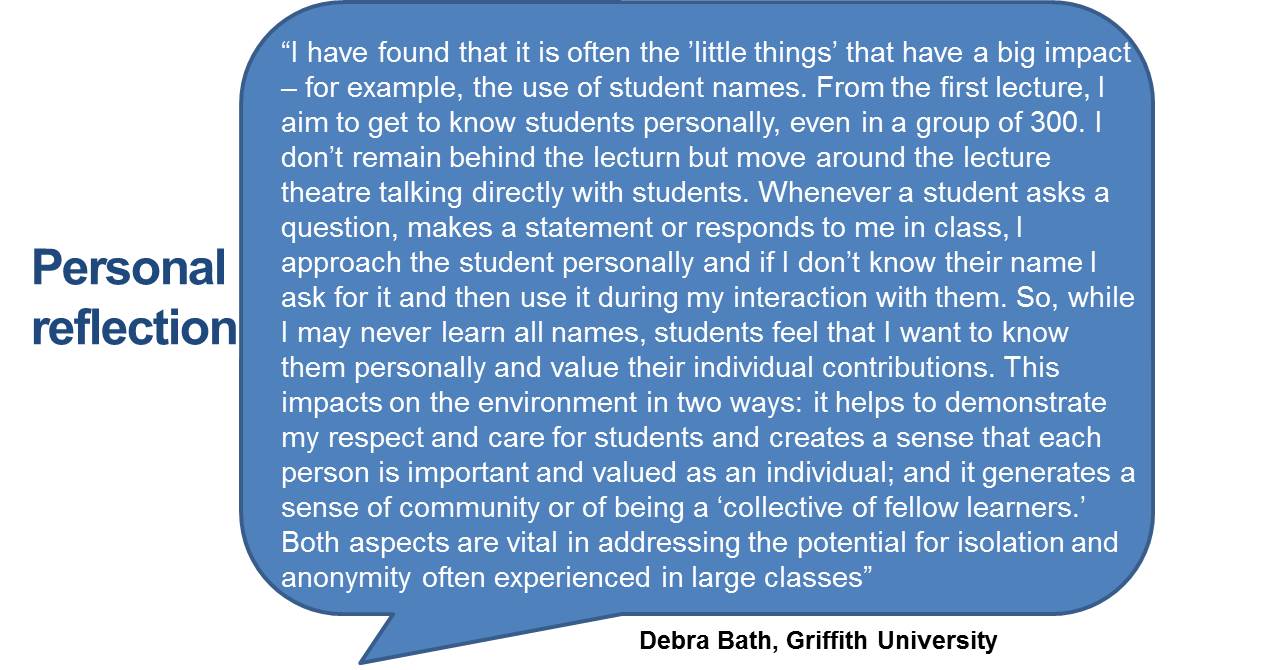Criterion 4
Exemplars
Criterion 4 | Developing effective environments, student support and guidance
Exemplar 1 – Teaching international students; strategies to enhance learning
This report provides research-informed strategies for addressing the needs of international students learning in a western higher education context. The report is informed by and features comments from staff and student interviews across a variety of disciplines and teaching contexts.The key areas discussed are; internationalising the curriculum, making lectures accessible, encouraging participation in small group work, adopting an educative approach to plagiarism, supporting students in developing critical thinking skills, and explaining assessment expectations.
Arkoudis, S. Teaching international students; strategies to enhance learning: Centre for the Study of Higher Education, Melbourne University.
Exemplar 2 – Marilyn Mitchell, Faculty of Humanities and Social Sciences, Bond University
In her application for a teaching citation, Marilyn reflects on the challenge of “designing and delivering programmes that motivate independent learning in students who are from many nations and cultural backgrounds and who have different learning styles, experiences, expectations and academic orientations” and the strategies that she has employed.
Wood, K., Knight, D., & Kinash, S. (Eds.) (2011). Scholarship of teaching and learning @Bond: Fostering early career research. Queensland, Australia: Office of Quality Teaching and Learning, Bond University, pp. 51-57.
Exemplar 3 – Case Study, Debra Bath, Griffith University.
Debra’s philosophy is ‘make it personal and make it active’. Debra was awarded a Citation for Outstanding Contribution to Student Learning in 2008 and in this case study she describes how she; 1) creates a safe and motivating environment in which students can engage with each other, the course and the learning process, and 2) gives compassion and support for students as individuals.
Bath, D. (2008). Principles to Promote Excellence in Learning and Teaching at Griffith University – Case Studies. Griffith University.

